Four Lessons from the NIT Season of 2013
This is normally the spot where we do our review of the news of the weekend, but in this case the weekend has provided us little. The UK Softball team won its regional in Lexington (for only the second time in school history) and is now headed to the Super-Regionals with a chance to make its first ever College Softball World Series. But besides that good news, UK land has provided us with little news as the Andrew Wiggins’ decision has officially closed the book on 2012-2013 and has set us on the path to one of the most highly anticipated school years in the history of UK Athletics. With the door having finally closed on this past year (one of the worst in the last 25 when looking at football/basketball collectively), it is worth noting what we learned from last season that can best be applied to next. We will start tonight with basketball and five lessons John Calipari has taken from the NIT disappointment that he will apply in future years. In some way Calipari has addressed each of these and they will be important trends to follow in the years to come:
1. Calipari Must Have a Talented, Hard-Nosed Point Guard:
There were a number of problems on last year’s team that if fixed, could have guaranteed a berth in the NCAA Tournament. Last year’s group was riddled with at least a dozen deficiencies that if they had been corrected, could have helped win or two more games and ultimately snuck the Cats into March Madness. But at Kentucky the standard is much harder and ultimately last year’s season was doomed by the decision to install Ryan Harrow as the starting point guard. This conclusion of course can only be made in hindsight, as most of the early signs for Harrow were very good. Even though many NC State fans and media questioned the kid’s toughness, when he came to Kentucky he looked up to the task for a better part of a year. He held his own daily in practice, going against a national championship team and often rising to the challenge. Going into the season, he said all the right things, was utilizing his tremendous athleticism and looked ready to make the leap to the Wall/Knight/Teague level of UK point guard leadership. But once the bright lights went on, Harrow went south. He was never able to handle the UK spotlight or the focus by Calipari on his play. From early on, his struggles became the team’s struggles, leading to a time in which he left the team and a number of behind-the-scenes issues that plagued last year’s group. Harrow is still a good kid but is an example that what Calipari always says, mainly that Kentucky isn’t for everyone, is certainly true. And more than any other person, the requirement that a player have extreme confidence in himself and top-notch ability, must apply to the point guard position. Calipari teams will go as far as the point guard takes them. He can either be a transcendent star (Rose/Wall), a great college scorer (Knight) or a solid all-around player with upside leading a great team (Teague). But what he can’t be is someone who can’t fit into Calipari’s system and is intimidated by the UK spotlight. Calipari learned in 2013 that he can’t turn every player, even those with talent, into a viable starting point guard for him at Kentucky. Judging mental and physical toughness will now be a prerequisite for all future selections at the position.
2. Toughness Must Be a Majority Quality:
Nearly every basketball team has a player that struggles with confidence or is more comfortable playing a supporting rather than a leadership role. John Calipari said on our show this week that such players are almost required, because a team full of “alpha males” may simply not work. But the 2013 team proved that even if a few of those players exist in the locker room, for a team to be a contender, toughness must be a quality possessed by the vast majority of the group. Over the years, John Calipari has been possessed by great players who not only were talented, but had the confidence and desire to dominate. Wall, Cousins, Patterson, Bledsoe, Knight, Lamb, Liggins, Davis, MKG and others all believed that even if they were playing poorly, on the next possession they could score on you and then stop you on the defensive end. This team simply didn’t have that. Archie Goodwin possessed supreme self-confidence, but his eyes were often bigger than his talent at key moments. However Calipari had to live with Archie’s aggression, because without it, he had no players willing to put it on the line and take the big shot. By the end of the season, the player who should have been the sixth man, Julius Mays, was taking the big shots because no one else had the courage to attempt them. Passive play became the norm and Kentucky withered against teams with far less talent. The old adage about a “crazy” player in the NBA now also applies to a Calipari team and toughness at Kentucky. You can have one guy, maybe two, that struggle with toughness…but any more than that and it infects and plagues your team.
3. You Must Have a Bench:
John Calipari has generally always believed that you find 7-8 guys and you stick with them as a rotation. Even though UK might go 11 deep next year, I would still expect at any given time to only see 8 or so get significant minutes during the course of the year. But Calipari learned this year that a bench is required, even if not to get huge minutes in games, but to push the players you do have to perform. When Kentucky saw players such as Alex Poythress and Archie Goodwin make mistakes of a significant nature, Calipari often had to leave them in as he had no viable options coming off the bench to replace them. If Poythress was not mentally into the game, he still had to stand in the corner on offense, because there was simply no one who could even do an adequate job replacing his defense. If Wiltjer wasn’t shooting well (and then not rebounding or guarding either), Calipari couldn’t yank him without losing nearly all ability to have a consistent second three point option. The bench was so thin that even in practice, a player who wasn’t even on the team when the year began (Tod Lanter), was forced to run against the first team and try to replicate its opponents. That doesn’t happen this year. No matter who the player is for Kentucky, if they are unable to perform, there will be a replacement on the bench that can have success. This will hopefully drive all the starters to reach higher levels and competition will make the strong either survive or sit…an option that Kentucky had at no points during last season.
4. UK Must Have Guys Who Can Hit Outside Shots:
From moment one of last season, outside shooting was a concern of mine and the problem ended up being worse than I would have imagined. While Alex Poythress provided some surprising help (he was much more effective from behind the three point line than anyone imagined), those expected to open up the offensive end by making threes were disappointing. Kyle Wiltjer went through long slumps as he was the focus of the defense for the first time of his career. Virtually any team that made stopping Wiltjer a focus (and increasingly more teams did) was able to neutralize his shooting and he was unable to find other ways to contribute. Archie Goodwin shot poorly nearly all season from three point land and Ryan Harrow’s inconsistent shooting followed his overall play. Julius Mays hit big shots during the season, but because he was unable to create his own space, he was forced to make them off the moves of others. Calipari did not have the “knockdown” three point shooter that he had with guys like Brandon Knight and Doron Lamb. The shooting was even worse than his first year, when the athleticism of Wall/Bledsoe often overcame some inconsistent outside looks (at least until the West Virginia game). With no one except Julius Mays seemingly willing and able to make open threes on a consistent basis, UK’s offense grew stagnant, teams packed the lanes and the penetration of Goodwin/Harrow/Poythress became ineffective. One more three point shooting threat and this would have been solved. That is why so much of this season will depend on if the trio of Aaron Harrison, James Young and Kyle Wiltjer can provide those consistent shots. With Andrew Harrison and Julius Randle taking people off the dribble, these three will get open looks. Calipari has learned from last year, that making those shots will be crucial to the team’s success.
Other lessons exist as well, but Calipari sees these four as takeaways that I think will have a major impact on recruiting going forward. He won’t get caught again in a situation like he had this past season. A good week of radio begins tomorrow and we will have Patrick Patterson, Matthew Mitchell and the “Biggest UK Fan Couple” contest though the course of the week. Until then, watch a singer named Miguel (he isn’t big enough to just have one name in my view) accidentally kick some poor woman in the head as his jump comes up just a bit short at the Billboard Awards:


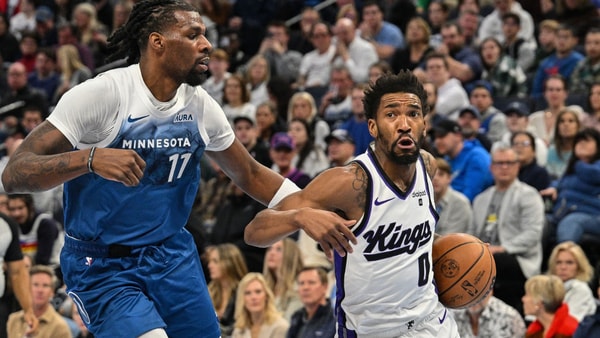
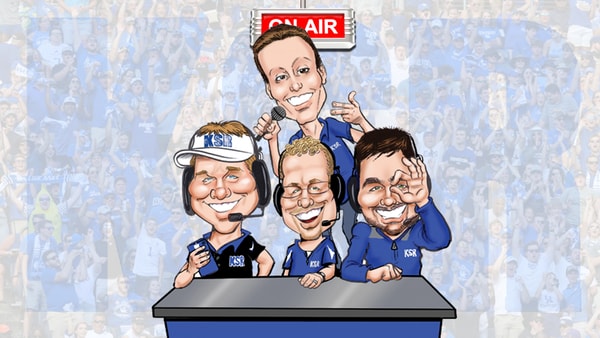
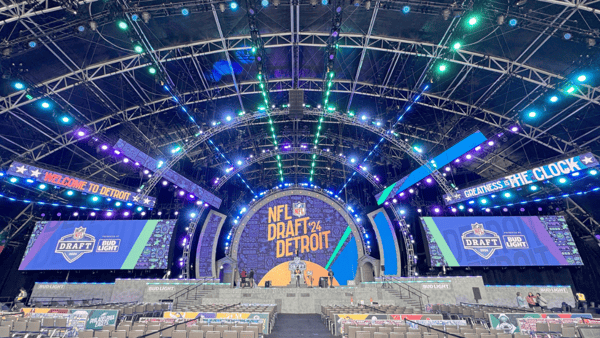
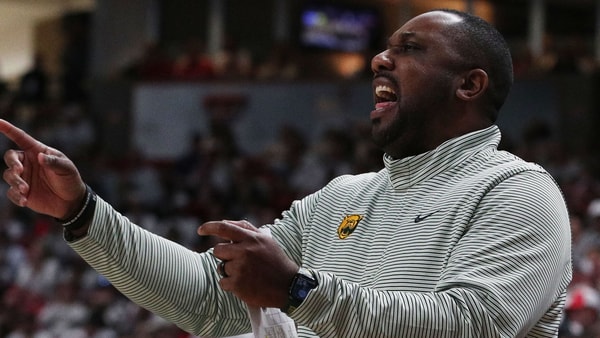
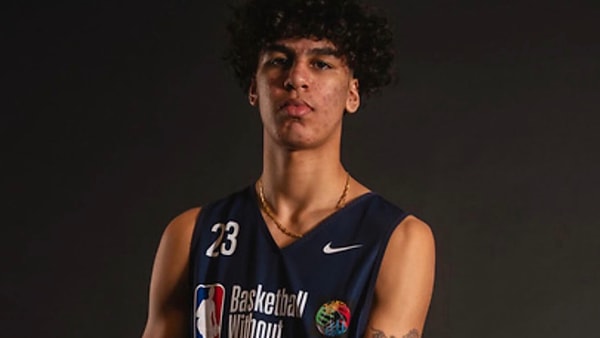

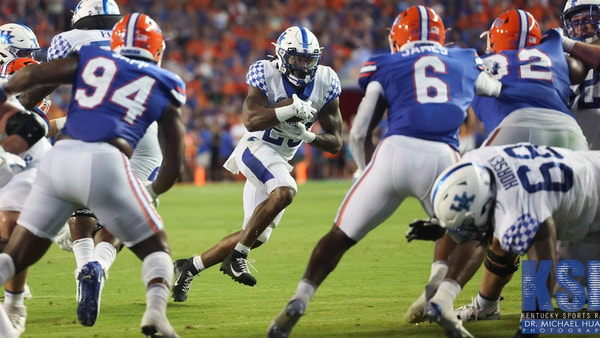

Discuss This Article
Comments have moved.
Join the conversation and talk about this article and all things Kentucky Sports in the new KSR Message Board.
KSBoard